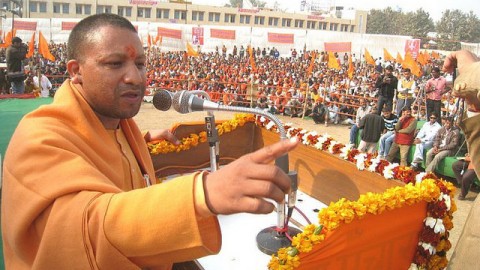Indian society is characterized by the pluralistic nature of its society, culture and religion. The idea of secularism is enshrined in our preamble. The freedom to preach and practice is a fundamental right guaranteed by our Constitution. Indian society is a fusion of various beliefs coexisting in harmony. It is home to Hindus, Muslims, Sikhs, Christians, Buddhist, Jains and Zoroastrians. India was one amongst those few countries which never participated in the persecution of Jews.
Conversely tensions and riots, especially between Hindus and Muslims has been a part of India’s contemporary history. Partition of India into India and Pakistan was on religious lines. This caused a vulnerability, to fall prey to disharmony, when incited. This vulnerability has been encashed and is used as tools to consolidate vote banks, on the lines of party politics. While political parties continue to accuse each other for creating a communal divide. Congress has time and again blamed BJP for inciting communal disharmony, but the 1984 anti-Sikh riots were incited by congress. Apart from the 2002 Gujarat riots, the Aligarh riots (2006), Assam riots (2012) and the most recent Muzzafarnagar riots occurred when congress was at the helm.
The recent resurgence of incidents of intolerance, has already started creating a hostility amongst religious communities. Love Jihad, beef ban or not allowing non-Hindus to enter the Navratri celebrations. All this is creating a wave of discomfort amongst both the communities. The artistic and academic community has begun to register their protests by returning the Sahitya award. Muslims and Hindus too are coming together to demonstrate communal harmony. The situation still tense with the Dadri incident, or the massive outrage fueled by the beef ban. The situation is grievous, with Arun Jaitely dubbing the outrage manufactured.
As the situation turns grim, a long term solution can be envisaged. Noted historian Romila Thapar has told that secularism will begin with the Uniform Civil Code. The Uniform Civil code (UCC) is article 44 of the directive principles of state policy. The code is uniformity in personal laws and cannot promote the interests of a particular religious group. To be secular in a true sense law should be separate from religion. The Supreme Court has advised the incumbent government to try and work towards the implementation of UCC. India as a nation is of Hindu majority, but as a democracy preserving the interests of all the sections of society must its priority. The primary concern of the government must be the welfare and protection of its own citizens. There is a need to realize the principal of welfare, because everything else being insignificant, being a welfare state is the basic premise of being a democracy.
Written by Rajrajeshwari Singh.
Disclaimer: The opinions expressed within this article are the personal opinions of the author. Spectralhues is not responsible for the accuracy, completeness, suitability, or validity of any information on this article. The information, facts or opinions expressed in the article do not reflect the views of Spectralhues and Spectralhues does not take any responsibility or liability for the same.
Tags: Arun Jaitley BJP Congress Dadri gujarat Hindu muslims Sahitya award UCC








